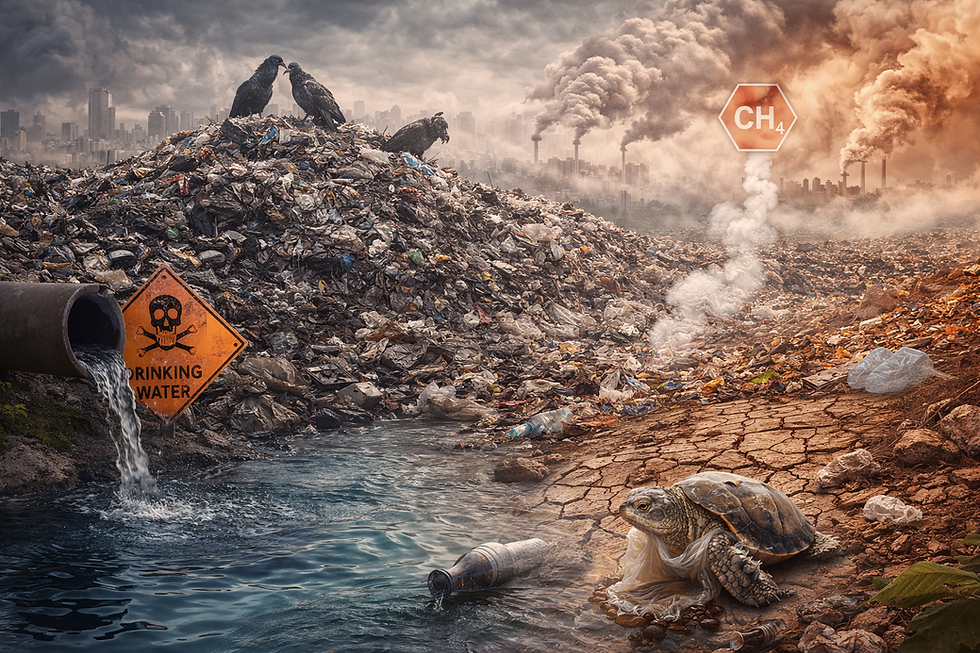Recycling and Zero Waste: Building a Sustainable Future for Our Community
- ierminstituteseo
- Oct 16, 2025
- 3 min read
In today’s world, sustainability is no longer just a buzzword — it’s a necessity. Recycling and zero waste practices are two of the most effective ways to reduce our environmental footprint, conserve resources, and create a cleaner, greener future for our communities. Whether you live in a busy city or a small town, every effort toward waste reduction counts.

What Is Recycling?
Recycling is the process of collecting, processing, and reusing materials that would otherwise end up in landfills. Commonly recycled items include paper, plastic, glass, and metals. When these materials are properly sorted and repurposed, they can be transformed into new products — reducing the need for raw materials and lowering greenhouse gas emissions.
For example, recycling aluminum cans saves up to 95% of the energy required to make new cans from raw materials. Similarly, recycling paper helps preserve trees and reduces water and air pollution. Local recycling programs make it easier for households and businesses to participate, keeping tons of waste out of landfills every year.
What Is Zero Waste?
Zero waste goes beyond recycling — it’s a lifestyle and a philosophy. The goal is to send nothing to landfills or incinerators. Instead, materials are reused, repaired, composted, or recycled in a continuous cycle that mimics nature’s efficiency.
A zero-waste mindset encourages mindful consumption, minimal packaging, and creative reuse. Simple changes — like carrying a reusable water bottle, shopping with cloth bags, and avoiding single-use plastics — can make a big difference. Communities around the world are adopting zero waste initiatives to reduce pollution and promote circular economies where nothing goes to waste.
Why Recycling and Zero Waste Matter
Environmental Protection: Reducing waste helps cut down pollution in our oceans, rivers, and forests. Proper waste management also prevents harmful chemicals from contaminating soil and groundwater.
Energy and Resource Conservation: Recycling and reusing materials save natural resources such as timber, water, and minerals — and require less energy than producing new items.
Economic Benefits: Local recycling industries create jobs, support innovation, and reduce municipal waste management costs.
Community Well-Being: Cleaner neighborhoods, reduced litter, and greener spaces lead to healthier and more attractive communities.
How to Practice Recycling and Zero Waste at Home
Sort Your Waste: Separate recyclables from non-recyclables. Check your local recycling guidelines to know which materials are accepted.
Compost Organic Waste: Food scraps and yard waste can be composted to create nutrient-rich soil for gardens.
Reduce Single-Use Items: Opt for reusable containers, bottles, and utensils.
Repair and Reuse: Fix broken items or donate them instead of throwing them away.
Shop Smart: Buy in bulk, choose eco-friendly brands, and avoid products with excessive packaging.
Local Community Action
Many cities and towns across Newcastle, WA are launching zero waste programs, curbside recycling pickups, and composting stations. Local residents can participate by joining recycling drives, community clean-ups, and educational workshops. Schools and businesses are also encouraged to adopt sustainable policies to help minimize waste generation.
If you’re unsure where to start, check your local government’s recycling center or environmental department website for drop-off points, accepted materials, and sustainability tips.
Building a Greener Tomorrow
Transitioning to a zero waste lifestyle is a journey — one that starts with awareness and small daily actions. By rethinking how we consume, reuse, and dispose of materials, we can protect our environment and inspire future generations to live sustainably.
Together, through recycling and zero waste efforts, we can build cleaner neighborhoods, conserve natural resources, and ensure a healthier planet for everyone.



Comments